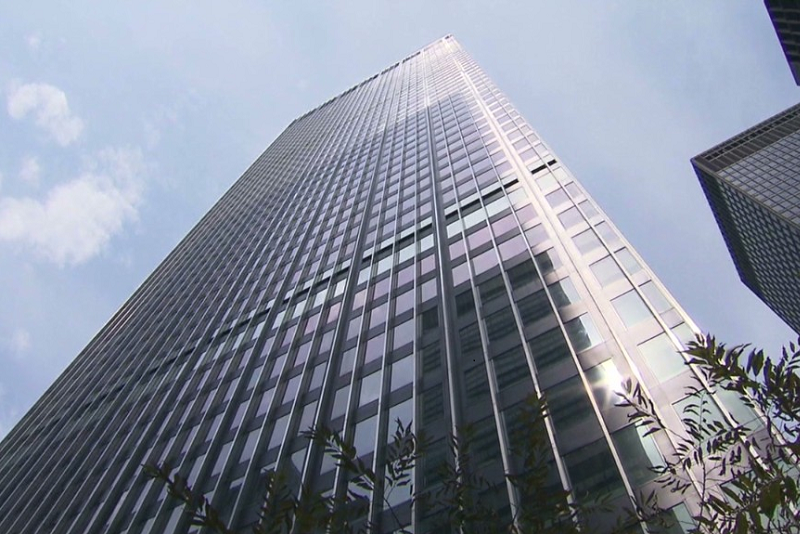BROWSE BY TOPIC
- Bad Brokers
- Compliance Concepts
- Investor Protection
- Investments - Unsuitable
- Investments - Strategies
- Investments - Private
- Features/Scandals
- Companies
- Technology/Internet
- Rules & Regulations
- Crimes
- Investments
- Bad Advisors
- Boiler Rooms
- Hirings/Transitions
- Terminations/Cost Cutting
- Regulators
- Wall Street News
- General News
- Donald Trump & Co.
- Lawsuits/Arbitrations
- Regulatory Sanctions
- Big Banks
- People
TRENDING TAGS
Stories of Interest
- Sarah ten Siethoff is New Associate Director of SEC Investment Management Rulemaking Office
- Catherine Keating Appointed CEO of BNY Mellon Wealth Management
- Credit Suisse to Pay $47Mn to Resolve DOJ Asia Probe
- SEC Chair Clayton Goes 'Hat in Hand' Before Congress on 2019 Budget Request
- SEC's Opening Remarks to the Elder Justice Coordinating Council
- Massachusetts Jury Convicts CA Attorney of Securities Fraud
- Deutsche Bank Says 3 Senior Investment Bankers to Leave Firm
- World’s Biggest Hedge Fund Reportedly ‘Bearish On Financial Assets’
- SEC Fines Constant Contact, Popular Email Marketer, for Overstating Subscriber Numbers
- SocGen Agrees to Pay $1.3 Billion to End Libya, Libor Probes
- Cryptocurrency Exchange Bitfinex Briefly Halts Trading After Cyber Attack
- SEC Names Valerie Szczepanik Senior Advisor for Digital Assets and Innovation
- SEC Modernizes Delivery of Fund Reports, Seeks Public Feedback on Improving Fund Disclosure
- NYSE Says SEC Plan to Limit Exchange Rebates Would Hurt Investors
- Deutsche Bank faces another challenge with Fed stress test
- Former JPMorgan Broker Files racial discrimination suit against company
- $3.3Mn Winning Bid for Lunch with Warren Buffett
- Julie Erhardt is SEC's New Acting Chief Risk Officer
- Chyhe Becker is SEC's New Acting Chief Economist, Acting Director of Economic and Risk Analysis Division
- Getting a Handle on Virtual Currencies - FINRA
ABOUT FINANCIALISH
We seek to provide information, insights and direction that may enable the Financial Community to effectively and efficiently operate in a regulatory risk-free environment by curating content from all over the web.
Stay Informed with the latest fanancialish news.
SUBSCRIBE FOR
NEWSLETTERS & ALERTS
Competing Priorities Bog Down Efforts to Quickly Roll Back Dodd-Frank
[Photo: Big Banks / CNN Money]
After weeks of high expectations for a swift Dodd-Frank rollback with a Republican in the White House, the reality of a hard slog is beginning to set in on Capitol Hill.
The Trump Administration, which has laid out plans to roll back Obama-era financial regulations along with a range of other priorities, now appears to be more focused on other parts of its agenda, such as healthcare and tax changes. Republican lawmakers who will usher an overhaul through Congress also are showing signs of a more tempered approach.
“The climate right now in the Senate is as toxic as I have ever seen it.” - - Sen. Mike Crapo (R-ID)
Meanwhile, Democrats, angered by President Donald Trump’s actions during his first month in office, have begun to fight the GOP over more routine business such as cabinet nominations and rules for congressional committees, potentially poisoning the well for bipartisan compromise on a financial-regulatory bill.
“The president’s actions make the notion of compromise all that much harder. And if I am saying that, you know he’s going to be in trouble.” - - Sen. Mark Warner (D-VA), a moderate Democrat on the banking committee.
The speed bumps have emerged even though Republicans and Democrats agree on some Dodd-Frank changes. Lawmakers in both parties have said for years they wanted to pass bills easing rules on community banks and credit unions, raising the $50 billion asset threshold at which regional banks face tougher rules, and more.
The challenge to getting financial legislation through Congress is finding a package of changes meaningful enough to Republicans without alienating too many Democrats who want to protect the core of Dodd-Frank. Lawmakers so far haven’t been able to find enough common ground on provisions involving the CFPB (Consumer Financial Protection Bureau), the Volcker rule banning certain types of bank trading, and the government’s authority to designate large nonbank firms for stricter oversight.
TIME PRESENTS ANOTHER CHALLENGE. Republicans have several initiatives that are likely to take priority over Dodd-Frank changes, including taxes, health care, and infrastructure spending. Mr. Crapo has said he wants to tackle an overhaul of the U.S. housing-finance system, a thorny issue because of its vast impact on the economy.
“We have a lot of things to do here,” Treasury Secretary Steven Mnuchin said in a television interview Thursday. He said a tax overhaul is the administration’s top economic priority, and he set the goal of completing that task by August.
And then there is other legislative business that can’t wait until next year – e.g., the National Flood Insurance Program expires this fall, portending a repeat of previous fights between the program’s supporters and small-government conservatives.
Mr. Crapo’s panel also hasn’t begun the time-consuming task of confirming Mr. Trump’s nominees to administrative jobs with responsibilities over the financial sector. There are 9 vacant posts at major financial regulators, and several more jobs in the Treasury Department that will require Senate confirmation, to name just a portion of nominees the committee must consider.
Once they are in place, those appointees may be able to change regulatory policies more quickly than Congress can alter Dodd-Frank.





